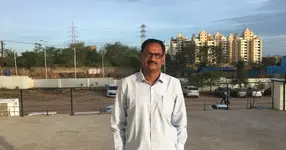New Delhi, Feb 28 – Former Asian Games bronze medallist and father of badminton star P V Sindhu, P V Ramana, has a different perspective on the ongoing debate about middle-class parents encouraging their children to pursue sports. Unlike recent comments made by national badminton coach Pullela Gopichand, Ramana believes sports can provide a crucial stepping stone for aspiring athletes, regardless of their financial background.
Ramana, who himself rose from a lower-middle-class background to represent India in volleyball, strongly advocates for sports as a means of personal and professional growth. Recalling his own journey, he shared, "My father passed away when I was three, and I was the youngest of ten siblings. But my elder brothers and sisters supported me because playing national-level volleyball earned me a job in the Railways. That changed my life."
His words come in response to Gopichand’s recent remarks that middle-class families should think twice before pushing their children into sports, as those who fail to reach the top level struggle with financial security. Gopichand had implied that sports in India are more suitable for children from well-off families.
However, Ramana refuted this notion, emphasizing that success in sports is not confined to wealth. He cited his own family as an example, where his elder daughter, P V Divya, pursued academics and became a doctor, while Sindhu excelled in badminton.
"Talent always reveals itself and is never a prisoner of wealth. As parents, we must recognize our child's strengths. When I saw my elder daughter was academically inclined, I encouraged her in that direction. Sindhu, on the other hand, was already standing out in badminton by the time she was in 10th grade. She had sponsors who saw her potential. We need to trust our children and their instincts," he stated.
Ramana also pointed out that sports can provide multiple career opportunities beyond just professional success. His own job in the Railways, he said, gave him financial stability and even led to his marriage with Vijaylakshmi, also a national-level volleyball player. She later took early retirement to support Sindhu’s career.
"Middle-class parents often worry about financial security, but sports provide many avenues. Railways alone hires thousands of athletes, and there are educational institutions with sports quotas. The key is guidance. Coaches and academies should actively inform young athletes about job openings and career paths," he explained.
Sharing an example, Ramana spoke about a young badminton player who couldn’t secure a Railway job but, with guidance, found a good position in the Income Tax department in her early 20s. "Driven youngsters find their way. They just need proper direction," he said.
He also highlighted the importance of education for athletes, citing government initiatives that provide retired sportspersons with opportunities in administrative and coaching roles. Sindhu herself is a commerce graduate with a Master’s in Business Administration.
On the notion that wealthier athletes have an advantage, Ramana dismissed the idea as "unfair." "During Sindhu’s early years, she once asked me why some of her peers traveled by air while we always took the train. But today, she has reached heights beyond those early struggles. Challenges will always be there, but preparation and perseverance make the difference," he concluded.
Ramana’s words serve as an inspiration for aspiring athletes and their families, reinforcing that sports can be a gateway to success, irrespective of financial background.

